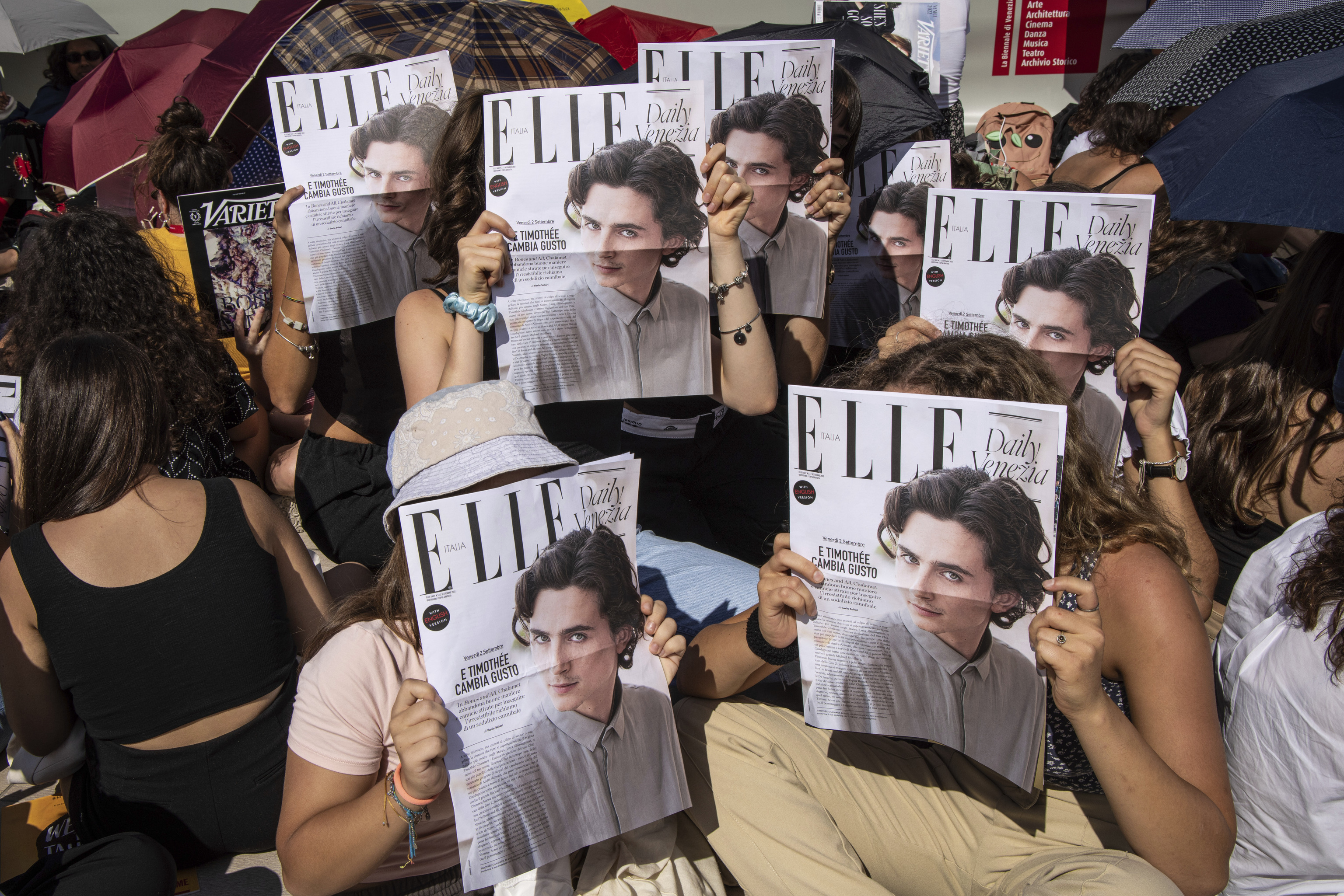Mostra de Venecia Iñárritu chokes on himself in 'Bardo, false chronicle of a few truths'
Venice Film Festival Cate Blanchett becomes a monument in the hypnotic 'TÁR', by Todd Field
Venice Mostra 'Noise in the background', the overwhelming 'anti-netflix' film produced by Netflix, opens the Mostra
When you walk into a restaurant you expect the cook to have taken the time to cook.
And if he does it well, much better.
Even the rawest tartar takes time to prepare.
It would seem that even more.
Digesting the raw, in a broader sense than the simply gastrointestinal, requires overcoming the barrier imposed by education always cooked in its own civilizing juice.
Luca Guadagnino
has long been a director in love with recipes with primary ingredients.
The star dishes on his menu are always desire, meat and even peaches offered as they are, without the slightest cooking.
Not even round and round in the pan.
'Bones and all',
his latest recipe (let's put it that way) presented at the Venice Mostra, is as elementally crude as can be imagined.
Based on Camille DeAngelis
's novel of
the same title, the screenwriter and regular collaborator of the filmmaker
David Kajganich
adapts a story of cannibals, which also wants to be an investigation of the limits of desire itself: what is beyond the cooked.
What we say to our partner on the most restless nights that we would eat it all, but all of it, well now in the literal sense.
Let's say it's a tartar, but pure passion (or human meat), not tuna.
Set deep in a United States without mobile phones (we are in the 80s of Ronald Reagan), the film follows two teenagers poisoned by an intimate secret that condemns them.
The interpreters
Taylor Russell and the ubiquitous Timothée Chalamet hit
the road without really knowing what they are running from.
In reality, as it is easy to deduce, their escape is from themselves.
And there, on the margins of everything, outside any hint of civilization, embracing the burning heat of the most unspeakable taboo of all, they strive to find their place, which, in truth, is, strictly speaking, a non-site.
To know more
Cinema.
Luca Guadagnino: "The beauty of Instagram is an instrument of oppression"
Drafting: LUIS MARTÍNEZ Venice
Luca Guadagnino: "The beauty of Instagram is an instrument of oppression"
Cinema.
Pauline Chalamet, more than just Timothée's sister
Drafting: LETICIA BLANCOBarcelona
Pauline Chalamet, more than just Timothée's sister
Guadagnino says he is fascinated by the marginalized characters, the crude ones.
The director of
'Call me by your name'
maintains that he is interested in all those impulses and desires that lead us to question ourselves, that force us to lose control.
And, finally, the filmmaker insists, in accordance with much of his previous work, that everything consists of finding the other's gaze, as radically different.
What questions us, what makes us tremble, is what best defines us.
Timothée Chalamet fans, today in Venice.Vianney Le CaerAP
Let's say everything is there.
'Bones and all'
is frontally cannibalistic because of what it has that is marginal, uncontrolled and different.
But, it is fair to admit, in its declared ungraspable and unclassifiable vocation
it ends up coming dangerously close to the arbitrary.
The fundamental problem is the absolute lack of faith that Guadagnino demonstrates in what tradition has called genre cinema.
Cannibalism, in effect, has a long cinematographic tradition that calls for astonishment as well as reflection.
In
'Raw'
by
Julia Ducournau
, to give the closest and most obvious example, the hunger for human flesh wanted to be a metaphor for the hidden that vibrates in an adolescent body that is transformed.
And the result impressed with the same clarity that was right to describe the usual drive with new energy.
We are not talking about the ' Twilight
' saga
, but there it is as a testimony to the obvious, perhaps too obvious.
Guadagnino actually uses cannibalism as an accident rather than as an argument or at least an excuse.
The characters are impelled to consume themselves by their cannibalistic nature so capriciously that, at some point, they forget about it to indulge in more cooked acts of love (some even precooked).
Let's say that the will of the director not to bend to any rule ends up playing against it, by
blurring the impressive initial proposal until it is slightly inane.
In the end, you get the feeling that the young protagonists are cannibals like they could be celiacs, and that, if only out of respect for the maître d', is wrong.
There is something intrinsically incomprehensible in everything that lacks a contrary.
We distinguish by dint of comparing, measuring, opposing.
And from there we draw the limits (and taboos) to get rid of the simply incomprehensible.
Lévi-Strauss said that the tribes that do not know what is cooked do not, in addition, have the slightest notion of what is raw.
And that certainty served him to deduce, among many other things, that it is only possible to understand that which has something with which to be confronted.
Otherwise, and greatly simplifying, to reach reality, to understand something that surrounds us, it is first necessary to abstract from what has been experienced and even forget about reality itself.
Guadagnino invites us to reflect radically on the raw
and that, always according to structural anthropological science, is the best way to understand the extremely cooked world in which we live.
Beyond failed gestures, the intention is always good.
In raw.
Conforms to The Trust Project criteria
Know more
USA
cinema

